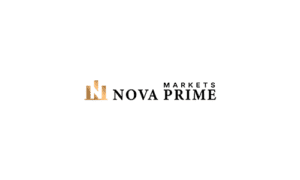The chase for compostable or biodegradable materials continues unabated on the back of pursuit of earth-friendly packaging. Policy makers and businesses in end-use industries seem to be equally ebullient in boosting the environmental sustainability of the packaging sector. Worldwide, the concept of paper bottles started taking concrete shape in recent times. In part, the evolution got enormously spurred by the plastic backlash that has swept across the globe. Compostability became a compellingly differentiating proposition for packaging companies across industries. In the race to offer sustainability solutions for beverages industry, Paper Bottles seem to be a fresh whiff of air.
The products in the paper bottles market intend to be completely recyclable, meet various barrier and other functional requirements for the packaging to work, and, above all, can be sourced sustainably. Brands in the beverages industry are increasingly ebullient with this stuff—with some going to great lengths for backward integration. The trend has also caught on momentum with personal care brands. Evidently, just in a matter of few years, the trend of paper bottle packaging has made rapid inroads. An unceasing growth of volume year-on-year (YoY) growth in the paper bottles market, the valuation is projected to climb to 20.5 million in 2029.
Get a glimpse of the in-depth analysis through our Report Brochure
Can Anti-Plastics Movement Sustain Momentum for Paper Packaging Materials for Long?
Bioplastics have emerged as a new trend for plastic packaging companies. Their vast potential notwithstanding, their success in integrating with a circular economy chain mandates the presence of an adequate recycling infrastructure. Unarguably enough, several countries have witnessed recycling value chain building up fast, and industry players have ramped up investments on new recycling technologies of note. Governments have also been at it with a slew of regulations that can mitigate the mounting problem of plastic waste. Still, bio-based packaging alternatives such as paper has piqued the interest of pioneers of sustainable packaging solutions.
While a not a new innovation, paper bottles are increasingly being preferred by food & beverages companies. Certainly, they can’t replace plastics anytime soon. PepsiCo, Inc., Diageo plc., and The Absolut Company AB are at the forefront.
Paper Bottle Technology: Which Companies are Testing the Water?
On the other hand of the spectrum, a few proprietary bottle base technologies are poised to enrich the prospects of the paper bottles market. Stridently, new generation of paper bottles have emerged to meet high-volume production need of the packaging companies. A Denmark-based company Paper Bottle Company A/S, are relentlessly working to unleash their proprietary bottle base technology for molding new designs of paper bottles. New fiber blends have also attracted their attention. They opine the paper bottles will find wide adoption for packaging liquid goods. The company prides itself in adopting responsible forestry practices to reduce the sustainability impact of cutting down trees for the fiber for its paper bottles. Such claims have raised the ante for the existing established players in the paper bottles market. However, the verdict is still out whether such developments will help rise against the tide of anti-plastics backlash with new materials. The odds in favor of paper bottles replacing plastic bottles for even the most beverage brands are low. For one, the mass of materials required for paper bottles is alarming—less mass for plastics can do the same job arguably, contend several experts in the packaging sector. One way to circumvent this is increasing the percentage of recyclable paper.
Having said that, the drive for new paper bottle technologies in the paper bottles market isn’t slowing down. Of note, packaging companies are fueling their suitability credentials for by increasing the proportion of using recycled paper.
What Sustainability Benefits Anchor Popularity of Paper Bottles Among Brand Owners
A number of paper packaging technologies have gained commercialization. One such commercially available paper bottles that vie for attention among beverages companies in the paper bottles market is The Frugal Bottle. In a deep-rooted urge to develop products that can make a dent in the carbon footprint of the food and drinks industry as a whole, the spirit for innovation is high. The company claims that this is an innovation in paper bottles market. Made from 94% recycled paperboard, these are suitable for spirits and wine. Another company that plans to be challenger is German-based PAPACKS Sales GmbH who develops sustainable cast fiber packaging. Its array of Molded fiber bottle has taken the packaging sector.
All said and done, one thing is clear. In order for paper bottles to become a practical long-term solution for the sustainable packaging, merely expanding the product line isn’t enough. Rather, stakeholders must ensure that they are cost effective.
For List of Key Players and Full Segmentation, Ask for a Sample Report.



































